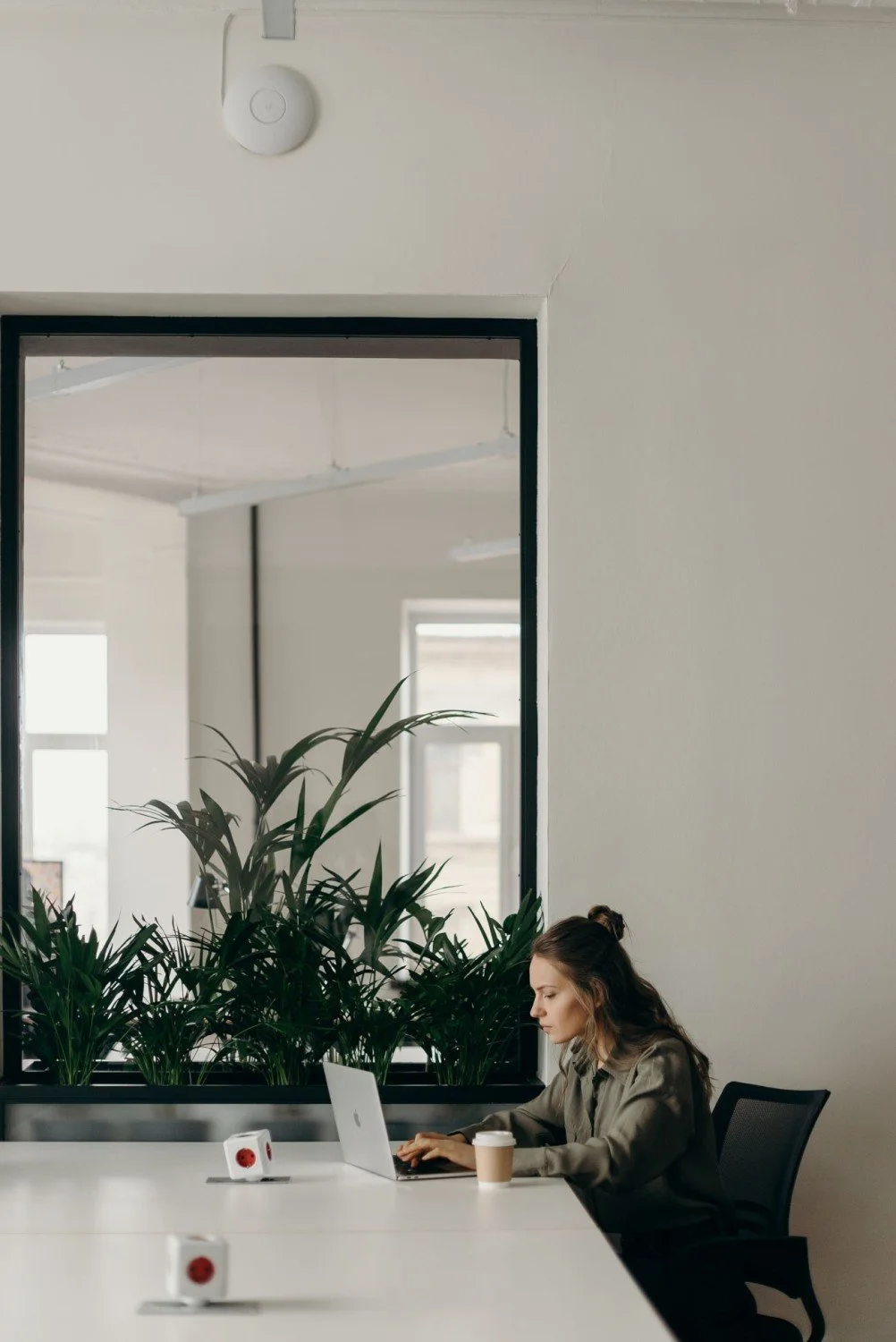The Power of Productivity: Why Lawyers Need It to Thrive
The Power of Productivity: Why Lawyers Need It to Thrive
So many of us struggle with this problem. Our partner keeps giving us more work to do. The court schedules unexpected hearings. Our clients call, asking us to help resolve a crisis. We are constantly interrupted by staff calls and emails. We have so much work to do and seemingly so little time that we feel overwhelmed and stressed. What to do? How do we manage this daunting workload?
In this edition of The Free Lawyer newsletter, I will discuss the most significant obstacles to managing our work and how we are affected when we are unproductive. I will explain what we enjoy when we achieve greater productivity. Most importantly, I will give you 12 tips to help efficiently manage your work in so much less time, creating more freedom for you to enjoy your life and to be fulfilled.
What are the biggest obstacles to our productivity?
These are some hurdles many of us experience:
Distractions: We are constantly interrupted by phone calls, emails, meetings, and interruptions by our staff.
Procrastination: Getting sidetracked by less important tasks or putting off difficult or unpleasant work is easy.
Overcommitment: Isn’t it hard to say no? We have so many clients, cases, and matters competing for our attention, leading to a sense of overwhelm. It is simply too much to handle.
Lack of focus: Feeling overwhelmed, we let our attention wander and do not focus on the most important tasks.
Burnout: Our profession is demanding and stressful. Many of us feel burned out. We need support to maintain a healthy work-life balance.
What problems do we encounter when we are not productive?
It is so hard to complete our work efficiently. We feel so stressed by all we have to do. We cut corners to get our work done. We lose our focus and get distracted. We move from one task to the other and try to do several things simultaneously. We are spinning our wheels. We always feel we need to catch up. We "take our work" home, frustrated with all we have to do. What are some of the problems this overload can cause?
Missed Deadlines: While it is terrifying, we often struggle to meet critical deadlines when we are unproductive. That creates more pressure and stress. It can lead to poor work product, lost clients, or even legal consequences.
Increased Workload: The less productive we are, the less we get accomplished. We will not manage our workload well, which can lead to stress, burnout, and decreased job satisfaction.
Poor Quality Work: Our work suffers when we are not productive. We may rush through our work or overlook important details, which can lead to mistakes or poor-quality work.
Damaged Reputation: If a lawyer consistently cannot meet deadlines or provide quality work, their reputation may suffer, leading to a potential loss of clients and referrals.
Reduced Job Satisfaction: Feeling overworked and overwhelmed, we may experience reduced job satisfaction, leading to disengagement, and a lack of fulfillment. We feel trapped.
How do we benefit by being more productive?
Increased Efficiency: When we are more productive, we can accomplish more work in less time, enabling us to take on more cases, meet deadlines, and achieve our goals more effectively.
Improved Client Relationships: By being more productive, we provide faster and more effective service to our clients, leading to stronger relationships with our clients.
Greater Job Satisfaction: When we accomplish more in less time, we experience greater job satisfaction and fulfillment, leading to increased happiness and professional success.
Reduced Stress: Being more productive can reduce stress and prevent burnout, as we can better manage our workload and avoid feeling overwhelmed.
Improved Reputation: By being more productive and achieving our goals more effectively, we can establish h a reputation for excellence and efficiency, leading to increased business and referrals.
How can you accomplish that productivity you need?
Would you like to have better control over your daily activities? To be more productive at work? To feel much less stress and much more fulfilled? To enjoy a better work life balance?
You can. Here are a dozen tools to help you have a more satisfying and productive professional experience:
New attitude towards time. Do not look at time as your enemy. Drop these familiar refrains: "I do not have enough time." "There is not enough time in the day." Stop being a victim of time and using it as an excuse. Instead, take ownership of your 24 hours a day, and make time your friend instead of your enemy. Those 24 hours are a tool to be used by you. How you use your time is a choice. When you stop making yourself a victim and instead take ownership of your day, you will become freer and more productive.
Analyze how you presently use your time. Before you can figure out how to use your time more effectively, you must understand how you currently spend your time. For a week, each day, track your activities and how long they took. It will help you identify how much you can accomplish in a day and where you might be wasting your time. You will discover where you are losing time on unnecessary distractions or unproductive conversations or activities. You also will learn how long your projects take you.
Prioritize. Prepare a list of what you have to do, and prioritize it. What is most important to get done first? What can wait? We spend too much time doing the simple, unnecessary, not urgent tasks first and put aside the higher priority, more challenging projects. We "get ready to get ready" to tackle the more important assignments. Eliminate those tasks that someone else could do for you or that you do not need to perform yourself. What are the most important, essential items for you to do first?
Delegate and obtain support. What tasks do you presently do that you could assign to someone else? What can your paralegal or your administrative assistant handle? Can you utilize support personnel at a much lower hourly rate to free you to handle the more important items? If there are items you are doing that can be done by someone else, delegate them!
Schedule your daily activities. Plan your day before it unfolds. Make a daily schedule of exactly what you must do and when and stick to it. Put everything on your schedule, including breaks and lunch. Before you go to work, already have prepared which priority tasks you will do first. Your task is to stick to your schedule as best you can. Scheduling your projects on paper will free your mind to focus on your most important functions.
Group similar tasks together. Instead of answering every email as it comes in, set a time to respond to all of them collectively at the same time. Likewise, if you do not have to answer your calls right then, schedule a time to make all the calls you need to make. You will save a lot of time and effort by organizing similar tasks together.
Stop multitasking. When we try to do too many things simultaneously, we do not do any of them efficiently. You lose time and productivity when you are constantly switching from one task to another. Multitasking is a waste of time and lessens our productivity. Instead, focus on one project exclusively, and complete it efficiently.
Assign time limits to your projects. Instead of just working on a project until you have fully completed it, set a specific amount of time you will exclusively work on it. Then, spend your designated time working on that task before you go on to the next project. Your productivity will skyrocket when you have a focused amount of time to work on each project.
Take a break. It is so important to take mini breaks to recharge our batteries. It may be surprising, but breaks are one of our most effective time management scenarios. After working for an hour or so, little breaks will improve your productivity. Schedule them as part of your day. For example, work for two hours, then take a 10-minute break. These breaks should be part of your daily schedule. Whether it is a short walk, a break to chat with a friend, reflection time, or a snack, building these buffers in your day will help you to be less stressed and more efficient
Just say no! Of course, we "have" to do many things, but we often say we will do something for someone else we do not really have to do. We will never learn how to efficiently manage our time if we always say yes to things we simply cannot handle. Instead, focus on the projects that require your talent and expertise and will create more value for the firm. Sometimes we simply have to decline some task so we can focus on more important, more productive projects that are more important to our firm.
Organize yourself. The piles of papers on your desk do nothing except make us feel overwhelmed. Have your workspace organized. Know how to find the file you need. Unclog your email box, eliminate junk emails, and decline subscriptions.
Block distractions. Emails, phone calls, web browsing, and social media messages can constantly distract us in our office. It is incredible how much time we waste on such distractions. If you are working on a high-priority project, put your phone on silent mode, and minimize your email, so you can truly focus. Also, close your door to limit interruptions.
Taking ownership of your time and utilizing these tools will help you simplify your work to do more projects faster and better. You will find more time to do what you love. You will feel more relaxed and fulfilled. The maxim "work smarter, not harder" could not be more true!
Conclusion
Productivity is critical for lawyers looking to succeed in their legal careers. Whether you are a junior associate, partner, or solo practitioner, increasing your productivity can help you achieve more in less time, improve your work-life balance, and ultimately positively impact your clients. To become more productive, start by setting clear goals, prioritizing tasks, delegating where appropriate, and optimizing your work environment. Remember, productivity is not just about working harder but also about working smarter. By incorporating these strategies into your daily routine, you can unlock your full potential as a lawyer and take your legal practice to the next level.
Would you like to learn how to create greater personal freedom by being more efficient? If so, I can help. You can schedule a courtesy call here: https://calendly.com/garymiles-successcoach/one-one-discovery-call





